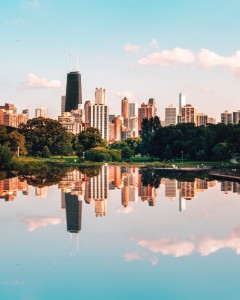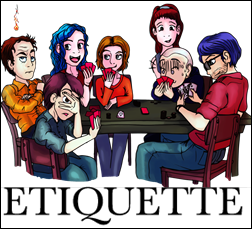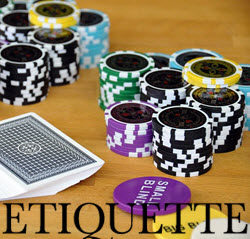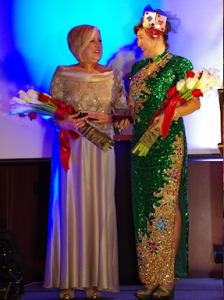The former state Sen. Rickey Hendon recently released an ambitious proposal concerning sportsbooks in Chicago. Hendon called for women and minority ownership in sports betting venues in the city of Chicago. The former senator believes that gambling legislation should be made with women and minorities in mind to ensure they have a seat at the table.
In this article, we will tell you more about Hendon’s proposal and the current situation concerning ownership of sportsbooks in Chicago.
Representation
 Former senator Hendon holds the belief that representation in all spheres of life matters, which is why he came up with this proposal.
Former senator Hendon holds the belief that representation in all spheres of life matters, which is why he came up with this proposal.
For the past few years, there have been many discussions regarding the role of women and ethnic/racial minorities in the US. Stories of systemic racism and misogyny have dominated news cycles and it seems like the country is coming into terms with its past racist and sexists practices and it’s now trying to make things right.
Of course, there’s the opposing viewpoint that we don’t need to have these conversations anymore since we no longer live in this past and that movements such as the Civil Rights movement and the Feminist Revolution of the 1960’s have already undone the damage caused.
No matter where you stand in this debate, the important question is whether you support legislation that is specifically tailored to advance previously oppressed groups of people, since Hendon’s proposal is precisely that.
You can simultaneously hold the belief that women and ethnic/racial minorities have suffered tremendously, while opposing such legislative attempts. This type of legislation is sometimes referred to as “positive discrimination” or “the practice or policy of favoring individuals belonging to groups known to have been discriminated against previously.” Some individuals vehemently opposite it by claiming that all forms of discrimination are, well, discriminating and thus wrong. Others stand on the opposite side of the spectrum by saying that such laws will bring the long-waited equity where each group of people will truly be equal to one another.
So, when you analyze Hendon’s idea, you should think about these concepts and make up your own mind.
The Proposal
Now let’s talk a little bit more about the proposal itself by examining its prospective effects, as well as Hendon’s motivations for creating it.
First, some background. In 2019, Illinois gov. J.B. Pritzker legalized sports betting in the state and he also allowed big stadiums to open sportsbooks in their vicinity. However, sports betting still has to be regulated by local authorities and the city of Chicago outlaws gambling.
Various legislators have called for gambling to be legalized in Chicago, including the mayor, Lori Lightfoot. She, however, criticized the proposed tax of 2% as too low, and the bill couldn’t pass in the city council. Lightfoot is also concerned that there is hardly any minority representation in these legislative proposals.
Enter Ricky Hendon. Instead of trying to draft bills in Chicago, Hendon set his eyes on Springfield, believing it to be the stepping stone to legalizing sports betting in the windy city. Hendon, who is Black, said that the Black aldermen of Springfield would oppose legalization in their city unless they are included in the legislative process.
Hendon’s proposal is to grant sportsbook licenses to underrepresented groups in gambling such as racial/ethnic minorities and women. He says that these groups need to be represented since they are already contributing to the treasury by gambling: “A lot of Black and Latino people bet on sports as well, so why not give us an opportunity to participate.”
Still, Hendon thinks this issue has to do with economic factors as well. Under the 2019 gambling bill, big sports teams can open sportsbooks in a five-block exclusionary zone around their large stadiums, which gives them a massive advantage over everyone else who would like to participate in the industry.
Hendon notes that it shouldn’t only be billionaires who can have sportsbooks, but also savvy independent entrepreneurs. Under his proposal, women and minorities would be able to receive licenses to open sportsbooks just outside this five-block exclusionary zone granted to famous Illinois sports teams.
Lightfoot initially opposed granting sportsbook licenses to big stadiums, but she seems to have changed her mind. We can’t say for certain whether she would accept Hendon’s idea or not, but her stances on similar topics have led us to believe that Hendon’s proposal might be successful.
Hendon is leading similar efforts to make Illinois cannabis industry more equitable. He continues to ask for more representation for women in minorities in the lucrative cannabis market. His efforts have been successful. This year, 55 licenses allowing the sale of cannabis have been handed to companies that mean to diversify the market. This makes us suspect that Hendon’s sportsbook proposal can also come to fruition.

 Before we get into details, we think it’s important to tell you how we chose poker players that we included in this article. One of the criteria was winnings, meaning that we looked at the most affluent female players.
Before we get into details, we think it’s important to tell you how we chose poker players that we included in this article. One of the criteria was winnings, meaning that we looked at the most affluent female players. There’s no denying that the online casino industry is a very male-driven one – the front pages of many online casinos show attractive ladies inviting the players to sign up and join in on the fun, and the amount of good-looking female dealers in the live casino section puts the number of males to absolute shame. The casinos’ color schemes are darker, and many games feature things that appear predominately to men, such as football or cars. And you know what? That is totally fine! After all, 82% of all online gamblers are men, according to the most recent statistics I could find, so it only makes sense that the people in charge of casinos will try to appeal to their primary demographic. That’s completely fine – we don’t expect casino sites to cater to women just like they don’t expect bingo sites to cater to men. This isn’t really my problem at all. The problem – and it is a problem that’s not exclusive to online casinos – is that the treatment of women within the gambling industry is somewhat insulting and degrading.
There’s no denying that the online casino industry is a very male-driven one – the front pages of many online casinos show attractive ladies inviting the players to sign up and join in on the fun, and the amount of good-looking female dealers in the live casino section puts the number of males to absolute shame. The casinos’ color schemes are darker, and many games feature things that appear predominately to men, such as football or cars. And you know what? That is totally fine! After all, 82% of all online gamblers are men, according to the most recent statistics I could find, so it only makes sense that the people in charge of casinos will try to appeal to their primary demographic. That’s completely fine – we don’t expect casino sites to cater to women just like they don’t expect bingo sites to cater to men. This isn’t really my problem at all. The problem – and it is a problem that’s not exclusive to online casinos – is that the treatment of women within the gambling industry is somewhat insulting and degrading. What have y’all been up to lately, my pets? My gambling lady friends and I have mostly been giving blackjack lessons. Well, calling it a lesson is a bit of an overstatement… You see, my college roomie Emily moved back into town a few weeks ago. She wanted to reconnect and I invited her to join us for a ladies’ casino night. But what a surprise – Emily hasn’t played any casino games. Ever! Can you imagine that?
What have y’all been up to lately, my pets? My gambling lady friends and I have mostly been giving blackjack lessons. Well, calling it a lesson is a bit of an overstatement… You see, my college roomie Emily moved back into town a few weeks ago. She wanted to reconnect and I invited her to join us for a ladies’ casino night. But what a surprise – Emily hasn’t played any casino games. Ever! Can you imagine that?  Very, very few companies have services which are so popular that they practically monopolize the market. There’s no “search engines”, there’s only Google, to the point where it has turned into a verb of its own (“Why don’t you google this?”). Sure, there’s other search engines around (Bing or Yahoo, for example), but honestly, nobody’s using them. Similarly, there isn’t really any other streaming service that can measure up to Netflix – a popular slang term was even created because of it, “Netflix & chill”, which at one point teenagers used as code for snu-snu. And let’s not lie to ourselves, as much as Apple wants to make iOS happen, it’s not gonna happen – Windows was, is and always will be the operating system of choice for everyone using desktop computers, to the point where people are actually
Very, very few companies have services which are so popular that they practically monopolize the market. There’s no “search engines”, there’s only Google, to the point where it has turned into a verb of its own (“Why don’t you google this?”). Sure, there’s other search engines around (Bing or Yahoo, for example), but honestly, nobody’s using them. Similarly, there isn’t really any other streaming service that can measure up to Netflix – a popular slang term was even created because of it, “Netflix & chill”, which at one point teenagers used as code for snu-snu. And let’s not lie to ourselves, as much as Apple wants to make iOS happen, it’s not gonna happen – Windows was, is and always will be the operating system of choice for everyone using desktop computers, to the point where people are actually 
 Whether you play poker online or live, there are a few mistakes that could not only cost you the respect of the other players, but also your tournament life. History has seen many cases in which big poker players have been sanctioned or excluded from tournaments because of an unsportsmanlike conduct. To prevent that from happening, here are a few tips and etiquette rules that can save you a lot of heartache.
Whether you play poker online or live, there are a few mistakes that could not only cost you the respect of the other players, but also your tournament life. History has seen many cases in which big poker players have been sanctioned or excluded from tournaments because of an unsportsmanlike conduct. To prevent that from happening, here are a few tips and etiquette rules that can save you a lot of heartache. Just to spice things up before the nominations, let me just throw that study in the mix, in case there’s someone out there still doubting women are not good at gambling. Sorry gents, but women make better gambling choices than men in stressful conditions. A study conducted by the University of Ohio observed over 100 men and women who were told they’d have to give a public presentation on their own bodies following 20 minutes of a simulated gambling game. The scientists wanted to see if there is a connection between the choices the players make as the time comes closer to the deadline. Much to everyone’s surprise (they didn’t expect the difference to be significant) the ladies in the study made better gambling decisions. Men’s decision-making declined as the clock was ticking.
Just to spice things up before the nominations, let me just throw that study in the mix, in case there’s someone out there still doubting women are not good at gambling. Sorry gents, but women make better gambling choices than men in stressful conditions. A study conducted by the University of Ohio observed over 100 men and women who were told they’d have to give a public presentation on their own bodies following 20 minutes of a simulated gambling game. The scientists wanted to see if there is a connection between the choices the players make as the time comes closer to the deadline. Much to everyone’s surprise (they didn’t expect the difference to be significant) the ladies in the study made better gambling decisions. Men’s decision-making declined as the clock was ticking. Hello again, ladies! I am thrilled to bring you yet another fantastic post and this time it’s all about the most important aspect of gambling – safety. I have it said over and over again that safety is and should always be your priority when playing at online casinos and this is a fact. But there are few things that you would need to dig a little bit deeper to find, so I decided to give you a few hints and guidelines as to how to choose a safe site to play at. So, here we go!
Hello again, ladies! I am thrilled to bring you yet another fantastic post and this time it’s all about the most important aspect of gambling – safety. I have it said over and over again that safety is and should always be your priority when playing at online casinos and this is a fact. But there are few things that you would need to dig a little bit deeper to find, so I decided to give you a few hints and guidelines as to how to choose a safe site to play at. So, here we go!